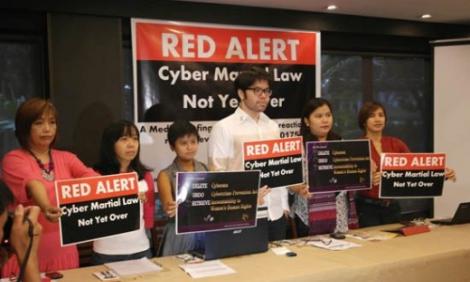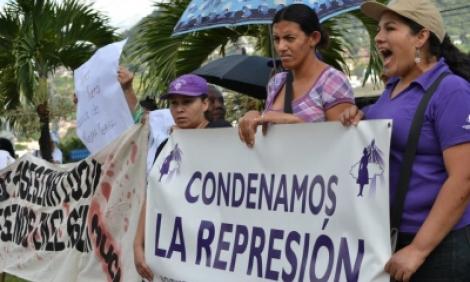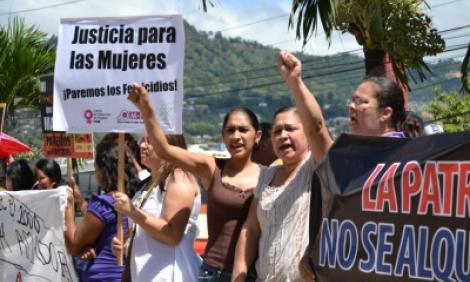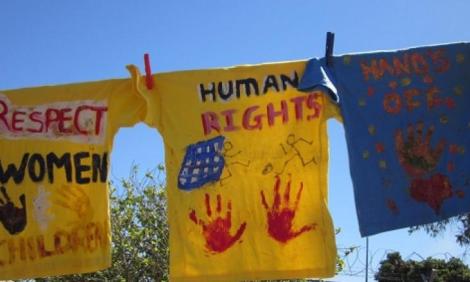Publication
Baseline study: Technology related violence against women in Bosnia and Herzegovina
This initiative aims to identify and map the existing situation on the ground, in terms of challenges that impede the understanding of violence against women and girls in digital spaces, and violence committed through use of information and communication technologies (ICTs) in Bosnia and Herzegovina. A poll and an interview were intended for and conducted in organizations/institutions that work…

Publication
UN Universal Periodic Review: Submission on internet-related human rights issues in Mexico
In partnership with members and networks, APC is working to protect and promote human rights online, engaging governments and other relevant stakeholders through a variety of United Nations processes including participating in the Universal Periodic Review (UPR). This submission prepared by APC and LaNeta under the APC project "End violence: Women's rights and safety online project", focuses on…

In depth
Philippines: “If no justice is given to the survivors/victims then the laws become useless”
Violence against women in the Philippines is considered a public crime. According to the Philippines National Demographic and Health Survey, one in five women aged 15-49 has experienced physical violence since age 15. The advent of computers and internet exposes women to another dimension of violence. GenderIT.org writer, Esther Nasikye, talked to Foundation for Media Alternatives about the forms…
Publication
Baseline study: Legal and regulatory framework in Colombia on VAW and ICT - Executive summary
This executive summary outlines the baseline for the present legal and regulatory framework in Colombia on violence against women (VAW) and information and communication technologies (ICT). The data was gathered by collecting information on the legal and regulatory framework. Three main aspects were identified: 1. The criminal offenses defined in the Criminal Code and related to a greater or…
Publication
Baseline study: Report on VAW and its reporting system in Philippines
When it comes to gender issues, technology presents opportunities and likewise challenges. Opportunities to promote gender equality and equity to end discrimination are endless and borderless. However, technology has become an unwilling accomplice that inflicts gender-based violence. Statistical data on violence against women and other gender-related crimes are regularly gathered to know if…
Publication
Baseline study: Violence against women and gender based harassment in context of ICT penetration in Pakistan
This report is intended to provide insight into the use of ICT tools as a means of women empowerment, aiming to dissect their use in facilitating women in realising leadership roles in society. The report is meant primarily to tackle the issues of ‘Violence against women’ (VAW) and ‘Gender based cyber harassment’ in Pakistan, and to address these issues by holding a discourse on the use of ICTs…

In depth
Women human rights defenders and digital security: Reflections with a Latin American accent
A survey of women human rights defenders (WHRDs) conducted as part of APC’s Connect Your Rights! campaign revealed some interesting practices and perceptions in terms of their use of information and communications technologies in their work. Daysi Flores, a GenderIT.org contributor, analyses the preliminary results of the survey, in light of the realities of Latin America.

In depth
Who benefits from the silence? Freedom of expression and women human rights defenders in Costa Rica, Honduras and Guatemala
In this article, Daysi Flores, a JASS Mesoamérica representative and GenderIT.org contributor, looks at a number of new cybercrime laws in Costa Rica, Honduras and Guatemala that pose a threat to online security, the right to privacy, and freedom of expression and association for the countries’ citizens in general, but for women human rights defenders in particular.

In depth
UPR of South Africa: Connecting the right to communication to women´s rights
South Africa's constitution guarantees freedom of expression, and has been interpreted to include the right to community media and to creative journalistic content. However, these progressive interpretations come in the light of broadcasting, rather than the internet. Online media and its regulation in South Africa fall short of the human rights standards that South Africa has recognised under…
Publication
16x16: rights . violence . technology - joining the dots
Take Back The Tech! presentation narrating the story of how violence against women and ICTs links together in 16 slides x 16 seconds.





